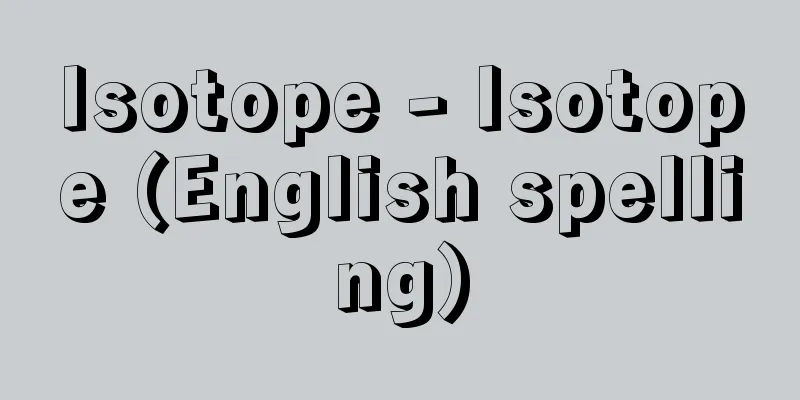Assassination

|
The illegal and secret killing of a politically influential person, motivated by differences in political and ideological positions. In a broader sense, it can also be used to refer to illegal killings in general, such as when it is caused by conflicts between gangs. The English word assassination and the French word assassinat, which mean assassination, are derived from the Arabic word hashshāshǐn, which means someone who has taken the drug hashish. At the end of the 11th century, a man named Hassan-ben-Sabbah created a small, elite secret society in Persia, and gave hashish to its members to assassinate government officials. This assassination group was brought to Europe by the Crusaders, and became the etymology of the word. The history of assassination itself is older, with examples such as the ancient Macedonian king Philip II in 336 BC and Caesar (by Brutus and others) in 44 BC. In modern times, examples include Marat during the French Revolution and American President Lincoln, and in the 20th century, Russian revolutionary Trotsky, American President Kennedy, and Egyptian President Sadat.In Japan, there are also examples such as powerful figures of the time, such as Ito Hirobumi and Hara Takashi, and anti-authority figures such as Yamamoto Senji and Asanuma Inejiro. There are distinctions between assassinations by those in power and those against those in power, between white terror and red terror, and between those with strong political planning and those with strong personal motives, but all of them promote political unrest and crisis under rising political tensions, and sometimes trigger wars (e.g. World War I). They are also closely related to palace revolutions and coups (e.g. the February 26 Incident). [Tetsuro Kato] "The Assassination of Sadat: The Tragedy of the Lonely 'Pharaoh'" by Muhammad Hassanain Heikal, translated by Sato Kikuo (1983, Jiji Press)" ▽ "The Dictionary of Assassinations" by Carl Sifakis, translated by Sekiguchi Atsushi (1993, Seidosha)" ▽ "Big names get killed: The world history of 'assassinations' that changed history" by Osawa Masamichi (1994, Nihon Bungeisha)" ▽ "The Dictionary of World Assassins" by George Feathering, translated by Sawada Hiroshi (2003 , Hara Shobo)" ▽ "The Assassination of Ito Hirobumi: The Real Culprit Buried in Darkness" by Ohno Yoshi (2003, Shinchosha) " ▽ "The JFK Assassination: Shocking Testimony 40 Years Later" by William Lemon and Billie Sol Estes, translated by Hirota Akiko (2004, Hara Shobo)" ▽ "The Truth Behind the Assassinations that Changed History: The Shocking History of Incidents that Moved the Era" by Hisayoshi Tsuge (PHP Bunko) [References] | | | | | | | | | |Takahiro | | | |Source: Shogakukan Encyclopedia Nipponica About Encyclopedia Nipponica Information | Legend |
|
政治的に影響力をもつ人間を、政治的、思想的立場の相違に基づく動機によって、非合法的かつ秘密裏に殺害すること。より広義には、暴力団同士の対立に由来する場合のように、非合法的殺害一般にも用いられる。暗殺を意味する英語assassinationおよびフランス語assassinatは、アラビア語のhashshāshǐn(麻薬の一種のハッシシhashishを飲んだ人、を意味する)に由来している。11世紀末にハッサン・サバーハHassan-ben-Sabbahという人物がペルシアにおいて少数精鋭の秘密結社をつくり、結社員にハッシシを与えては政府要人を暗殺させたが、この暗殺団のことが十字軍によりヨーロッパに伝えられ、語源となった。暗殺の歴史自体はより古く、紀元前336年の古代マケドニア王フィリッポス2世や前44年のカエサル(ブルートゥスらによる)の例が知られている。近代以降では、フランス革命期のマラー、アメリカ大統領リンカーン、20世紀にもロシアの革命家トロツキー、アメリカ大統領ケネディ、エジプト大統領サダトらの例があり、わが国でも、時の権力者伊藤博文(ひろぶみ)、原敬(たかし)や、反権力側の山本宣治、浅沼稲次郎などの例がある。 暗殺には、権力者によるものと権力者に対するもの、白色テロ、赤色テロ、政治的計画性の強いものと個人的動機の強いものなどの区別があるが、いずれも政治的緊張の高まりのもとで政治不安、政治危機を促進し、ときには戦争の引き金となる(例、第一次世界大戦)。また宮廷革命やクーデターと密接に関係する(例、二・二六事件)。 [加藤哲郎] 『ムハンマド・ハサナイン・ヘイカル著、佐藤紀久夫訳『サダト暗殺――孤独な「ファラオ」の悲劇』(1983・時事通信社)』▽『カール・シファキス、関口篤訳『暗殺の事典』(1993・青土社)』▽『大沢正道著『大物は殺される――歴史を変えた「暗殺」の世界史』(1994・日本文芸社)』▽『ジョージ・フェザリング著、沢田博訳『世界暗殺者事典』(2003・原書房)』▽『大野芳著『伊藤博文暗殺事件――闇に葬られた真犯人』(2003・新潮社)』▽『ウィリアム・レモン、ビリー・ソル・エステス著、広田明子訳『JFK暗殺――40年目の衝撃の証言』(2004・原書房)』▽『柘植久慶著『歴史を変えた「暗殺」の真相――時代を動かした衝撃の事件史』(PHP文庫)』 [参照項目] | | | | | | | | | | | | | |出典 小学館 日本大百科全書(ニッポニカ)日本大百科全書(ニッポニカ)について 情報 | 凡例 |
Recommend
Alpa
A harp used throughout Latin America. It originate...
Liesegang ring (English spelling) Liesegang ring
…This periodic precipitation phenomenon is called...
Career woman
...But it can also be more narrowly defined as a ...
Etchu Owarabushi - Etchu Owarabushi
Folk song of Toyama prefecture. Toyama city Yao Ya...
Palm print - Shomon
A pattern formed by the ridges of the skin (skin ...
Mr. Mac - Macshi (English spelling) Mac
A clan that usurped the Le Dynasty in Vietnam in t...
Bibiena, C.
…the Galli da Bibiena family was an Italian famil...
Caffeine - Caffeine (English spelling)
A type of purine alkaloid found in many higher pl...
Togo-so - Togo no sho
The estate was the domain of Matsuo Taisha Shrine...
Imagireguchi - Imagireguchi
...It used to be a freshwater lake separated from...
Tamanawa
The name of a place in Kamakura City, Kanagawa Pre...
Epidote (English spelling)
In a broad sense, it is a general term for epidote...
Red flower American horse chestnut - Red flower American horse chestnut
...The leaflets are slightly smaller than those o...
Berengario I
?-924 King of Italy (reigned 888-924); Holy Roman ...
Left side - Saho
〘 noun 〙① The left side. ⇔ The right side. ※From E...







![Maga [Hot Spring] - Maga](/upload/images/67cce2becc3ec.webp)

